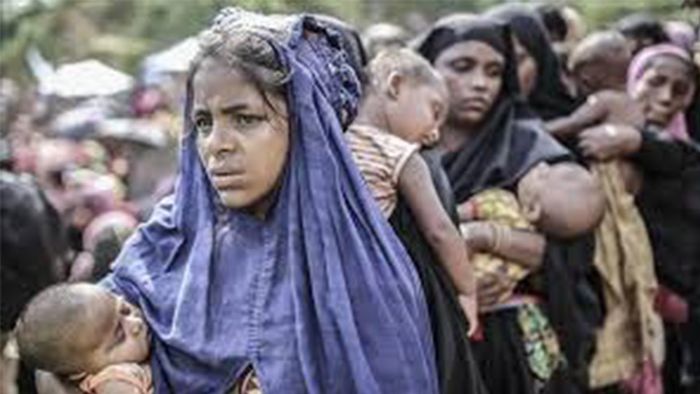Human Rights organisation urges Bangladesh to release Rohingyas stranded in silt island

- Jul 11, 2020,
- Updated Jul 11, 2020, 12:48 AM IST
The Human Rights Watch, an international non-governmental organization, headquartered in New York City, urged the Bangladesh authorities to release over 300 Rohingya refugees, including at least 33 children, from the silt island of Bhasan Char to the Cox’s Bazar refugee camps to be with their families.
The Bangladesh government has yet to allow United Nations officials to provide protection services and aid to the refugees detained on Bhasan Char, who had been stranded at sea for several weeks.
The authorities said that the rescued refugees needed to be temporarily quarantined on Bhasan Char to protect against the spread of Covid-19 in the crowded camps. However, more than two months later, the refugees remain on the island, at risk of flooding and stormsduring the current monsoon season, despite calls from UN Secretary-General António Guterres and humanitarian experts to safely return them to the refugee camps in Cox’s Bazar.
Also read: WHO acknowledges ‘airborne transmission’ of Covid-19 with new guidelines
“Bangladesh authorities are using the pandemic as an excuse to detain refugees on a spit of land in the middle of a churning monsoon sea while their families anxiously pray for their return,” said Brad Adams, Asia director, as quoted by the Human Rights Watch.
Families in Cox’s Bazar told Human Rights Watch that relatives on Bhasan Char are being held without freedom of movement or adequate access to food or medical care, and face severe shortages of safe drinking water. Some refugees have alleged that they were beaten and ill-treated by Bangladesh authorities on the island.
Some families in Cox’s Bazar said that camp leaders told them that if they wanted to see their family members, they must join them on the island. One refugee in Cox’s Bazar told Human Rights Watch that a leader from his camp came and collected his personal information, saying that they needed it because his son is on Bhasan Char. “One of them visited my shelter and said I might need to go over there to join my son,” he said.
Refugees’ fears over relocating to Bhasan Char are well-founded. Humanitarian experts have repeatedly raised concernsover the habitability of the island and whether refugees living there would have freedom of movement and access to food, water, medical care, and education. When then-UN special rapporteur on Myanmar, Yanghee Lee, visited the island in January 2019, she questioned whether the island was “truly habitable.”
Bangladesh actions to move more refugees to Bhasan Char would be a dangerous reversal of the government’s position, Human Rights Watch said.
Meanwhile, Myanmar has yet to take concrete steps to enable safe and voluntary refugee returns. Donors and concerned governments should insist that the Myanmar government and military ensure the security and basic rights of Rohingya, ensure unhindered access for international humanitarian agencies to provide resources and monitor rights, and provide full citizenship for the Rohingya, with all accompanying rights and protections, Human Rights Watch said.
Readers like you make Inside Northeast’s work possible.
To support our brand of fearless and investigative journalism, support us HERE.
Download:
The Inside Northeast app HERE for News, Views, and Reviews from Northeast India.
Do keep following us for news on-the-go. We deliver the Northeast.